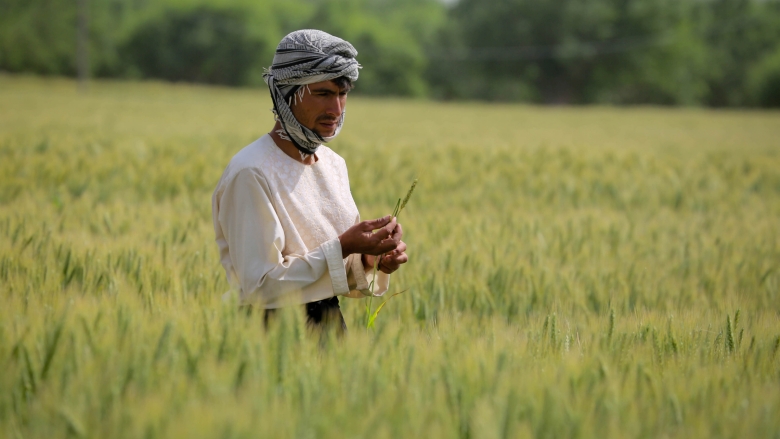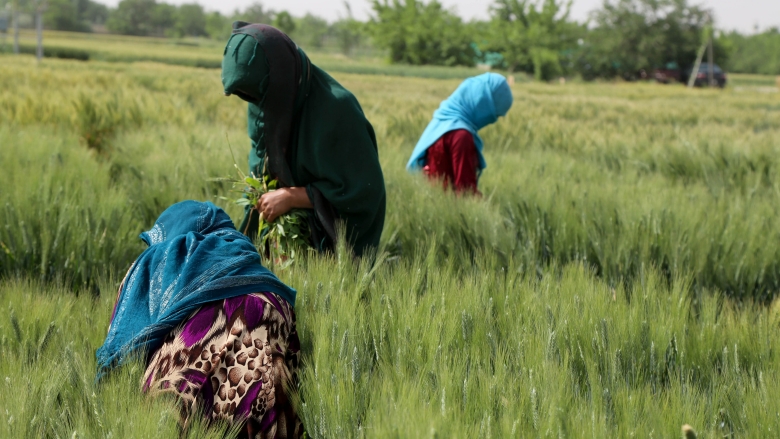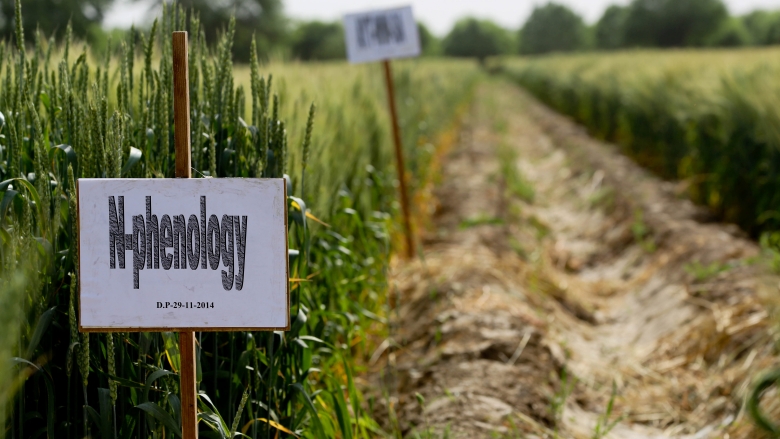DEHDADI DISTRICT, Balkh Province – The constant sound of crickets and the beautiful singing of birds break the silence of the early morning at Posht-e-Bagh Research Farm, where Mohammad Wasim is working.
Wasim, 25, who has been working at the farm since the age of 18, is one of its six official farmers producing breeder seeds. Posht-e-Bagh Research Farm is one of the most important research farms in northern Afghanistan producing breeder seeds. “We do the irrigation, raking, weeding and other tasks here,” says Wasim. “So far, I am completely satisfied with my job and try to teach what I learn here to other farmers.”
There are 16 employees working in five different sections in Posht-e-Bagh Research Farm. Wasim works in all five sections: grains, plant breeding, agronomy, vegetables and fruits, and plant protection. He and his colleagues are currently looking at 972 different types of wheat to assess their suitability for local growing conditions.
Every seed produced here passes through five stages: introduction, in which seeds and the ensuing crops are assessed for their suitability; selection; hybridization; mutation; and genetic engineering. At the end of this process is a breeder seed that is sent for further processing before reaching farmers in the form of ‘improved’ seeds.
According to Abdul Wahid Wahidi, a researcher with the Ministry of Agriculture, Irrigation and Livestock (MAIL), the main goal of Posht-e-Bagh Research Farm is to increase farmers’ productivity in northern Afghanistan through the eventual production and distribution of improved seeds—an outcome that will help generate a long-term solution to the eradication of poverty among farmers. The farm is located on the Mazar-e-Sharif – Sholgar road in Dehdadi district, 16 kilometers west of the city of Mazar-e-Sharif in Balkh province.
Breeder seeds produced by farms, such as Posht-e-Bagh Research Farm, under the Agricultural Research Institute of Afghanistan, are sent to six Improved Seed Enterprises across the country for multiplying to foundation seeds on its regional farms, or through contract seed producers. The foundation seeds are grown and registered, and then sent to Private Seed Enterprises (PSEs).
The102 PSEs across the country multiply the registered seeds into certified seeds, which farmers know as ‘improved’ seeds that are then sold or distributed to local farmers.



